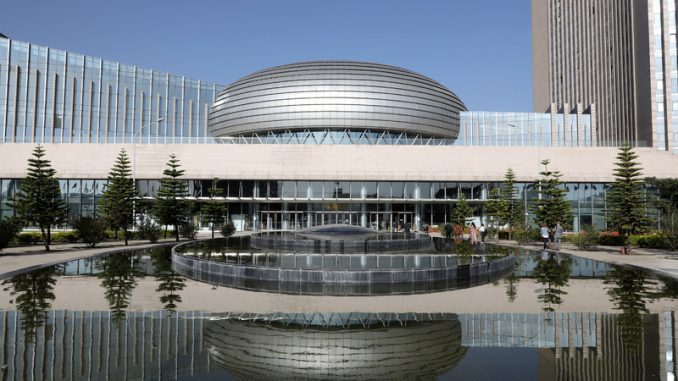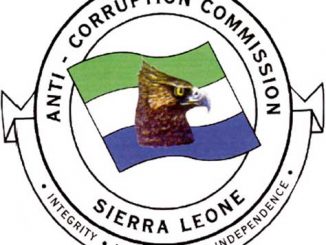

One of the most influential diplomats in Africa is among dozens of senior African Union(AU) Commission officials implicated in an internal inquiry into sexual harassment, gender discrimination, fraud, nepotism and abuse of power.
Although the inquiry’s report was finalised in November, it has yet to be made public — and there have been no repercussions for any of the alleged perpetrators.
“The commission promised to implement the recommendations of the report, but we have been sidelined and ignored,” said one AU staffer, who asked to remain anonymous for fear of retribution. “Meanwhile, the culprits get to keep their jobs. It feels like they are trying to cover it up.”
She is one of 37 women who signed a petition in 2018 that alleged a “professional apartheid” against women in the commission.
It was this petition, and the accompanying Mail & Guardian investigation, that prompted the inquiry.
The inquiry was led by Bineta Diop, the AU’s special envoy on women, peace and security. Initially, its mandate was just to look at cases of gender discrimination and sexual harassment, but the final report — based on 88 interviews with AU staffers — went much further than that, outlining 40 cases of sexual harassment, gender discrimination, nepotism and corruption.
The full report, submitted to chairperson Moussa Faki Mahamat in November, has never been released. The M&G has seen an abridged version, which makes stunning allegations about the scale of the rot at the heart of the AU, including that:
- Sexual harassment is pervasive in the institution, with some senior departmental staff positioning themselves as “gatekeepers” and demanding sex in exchange for jobs;
- Corruption is “systemic, entrenched and widespread”;
- Bullying and harassment of staff is “prevalent”;
- Women are under-represented at decision-making levels; and
- There is “rampant abuse of authority” by some commissioners, directors and supervisors.
The full report identified 40 specific cases deemed worthy of further investigation. Upon receipt, Faki promised to take “immediate action on urgent issues, such as the acting appointments and other relevant policy issues within the mandate of the commission”.
But there is scant evidence that any action has been taken, and some of the men implicated in demanding “sex for jobs’” remain in their position, leaving women vulnerable to further exploitation.
Nor has there been any effort to provide redress to the women who testified before the inquiry. “Nothing has been done in order to provide justice and remedy for the victims. Some of them still have no contract and those with contracts are sidelined without being given anything to do, especially in the peace and security department, while others have left in frustration,” said one former AU department head, speaking on condition of anonymity.
“Most of us have not even been contacted officially. If we want information about our cases, we have to stop people in the corridors and make them talk to us,” said another woman who testified before the inqui
The M&G learned that some of the women who testified received a pro-forma communication from the office of Faki shortly after the newspaper began making formal inquiries to the commission two weeks ago. The letter apparently reassured recipients that their cases were being dealt with.
The commission did not respond to detailed questions put to it by the M&G, saying only: “The African Union will communicate when the process, currently still under way, is complete.”
More than 30% of the specific cases identified by the inquiry came from just one department: the peace and security department, headed by commissioner Smaïl Chergui.
The M&G has confirmed that Chergui, one of Africa’s most influential diplomats, is named in the report, in relation to abuses of authority and human resources malpractices.
This would not be the first time that his name has been linked with a serious allegation of corruption. In February, in a letter leaked to the Mail & Guardian, the commission’s deputy chairperson, Thomas Kwesi-Quartey, said Chergui had signed off on the allegedly nepotistic appointment of a new AU ambassador to Brussels.
Chergui denied any wrongdoing.
In response to questions from the M&G, Chergui downplayed the nature of the report’s findings. “At this moment I haven’t yet read the report, but I understood that the findings were in their almost totality related to salaries and contracts. They were investigated by finance and admin and addressed directly and accordingly.”
Chergui added that as the largest employer in the commission, it makes sense that the largest percentage of issues would arise from the peace and security department.
What the African Union inquiry committee found out
Below are excerpts from the report of the high-level committee, established to investigate allegations of harassment of women and other institutional malpractices in the African Union Commission.
On bullying and harassment
“The committee finds that the incidence of harassment and bullying of staff is prevalent in the commission. This presents itself in the form of the use of language of a humiliating and degrading nature, yelling, name-calling, and issuing of verbal threats of termination of employment. This kind of behaviour is exercised by senior staff, very often in full view of co-workers. The evidence that this occurs, even in some of the highest offices of the commission, is incontrovertible.”
On sexual harassment
“It is the finding of the committee that incidents of sexual harassment exist in the commission. This is established by the almost unanimous confirmation of the prevalence of this occurrence by interviewees appearing before the committee. Evidence presented [suggests] that this form of harassment is perpetuated by supervisors over female employees in their charge, especially, but not exclusively, during official missions outside work stations … senior departmental staff, who position themselves as ‘gatekeepers’ and ‘kingmakers’, are well-positioned to make believable promises to young women that they will be offered contracts … according to interviewees, the young women are exploited for sex in exchange for jobs.”
On gender discrimination
“The committee finds that the commission has attained gender parity at the level of commissioners, as this is prescribed by AU statute; and also, at the level of advisers in the bureau of the chairperson. It is the finding of the committee that the commission is ‘male-heavy’ in its overall gender demographics, as well as in certain departments. Analysis shows that gender distribution in the commission overall currently stands at 64% male to 36% female … in the absence of special affirmative action measures put in place, evidence presented suggests that male candidates are generally preferred over female candidates in recruitment … in three cases, the committee was informed that a female candidate was instructed by a male superior not to bother applying for a particular position because it had already been reserved for a male candidate.”
On fraud and corruption
“The committee arrives at the finding that there are systemic, entrenched and widespread practices of corruption and procurement fraud in the commission … these acts of corruption take myriad forms, including but not limited to the scenarios that follow: nepotism and conflict of interest [some officials recruit friends, relatives and country-mates] … disadvantaging candidates during shortlisting process [some CVs are ‘eliminated’ or ‘sieved’ to preference others] … by-passing the shortlisting process … award of short-term contracts … missions in exchange for benefits [superiors approving missions in exchange for a percentage of the daily subsistence allowance] … preferential selection of service providers [several incidents of awarding service contracts to friends or relatives, without disclosure of interest] … payment for services not rendered … collusion to overcharge for goods and services … foreign exchange rates [manipulating official forex conversions for personal gain].”
On abuse of authority
“Across the board, reporting personnel persons and interviewees alleged rampant abuse of authority by some commissioners, directors and supervisors. This manifests in acts of constructive dismissal, where employees are not assigned any work. In other instances, the contracts of staff are terminated without notice. This, it was alleged, contributes to low staff morale. In other cases, superiors failed or refused to perform performance appraisals of their immediate reports, purely for purposes of frustrating their career or salary grade progression. The committee learnt that assignment to missions outside headquarters or work station was used as a tool by superiors to either ‘punish’ disloyalty or reward ‘bootlicking’.”
If you have further information relating to this story, please contact the author at [email protected]. All correspondence treated in complete confidence.



